A day in the life of Melba, a highly skilled veteran drug-sniffing dog! He is currently working at Tokyo Customs at Narita and Haneda Airports!
Retiring within the year, he made a major achievement in '19, discovering about 30 kg (1.8 billion yen worth) of methamphetamine!
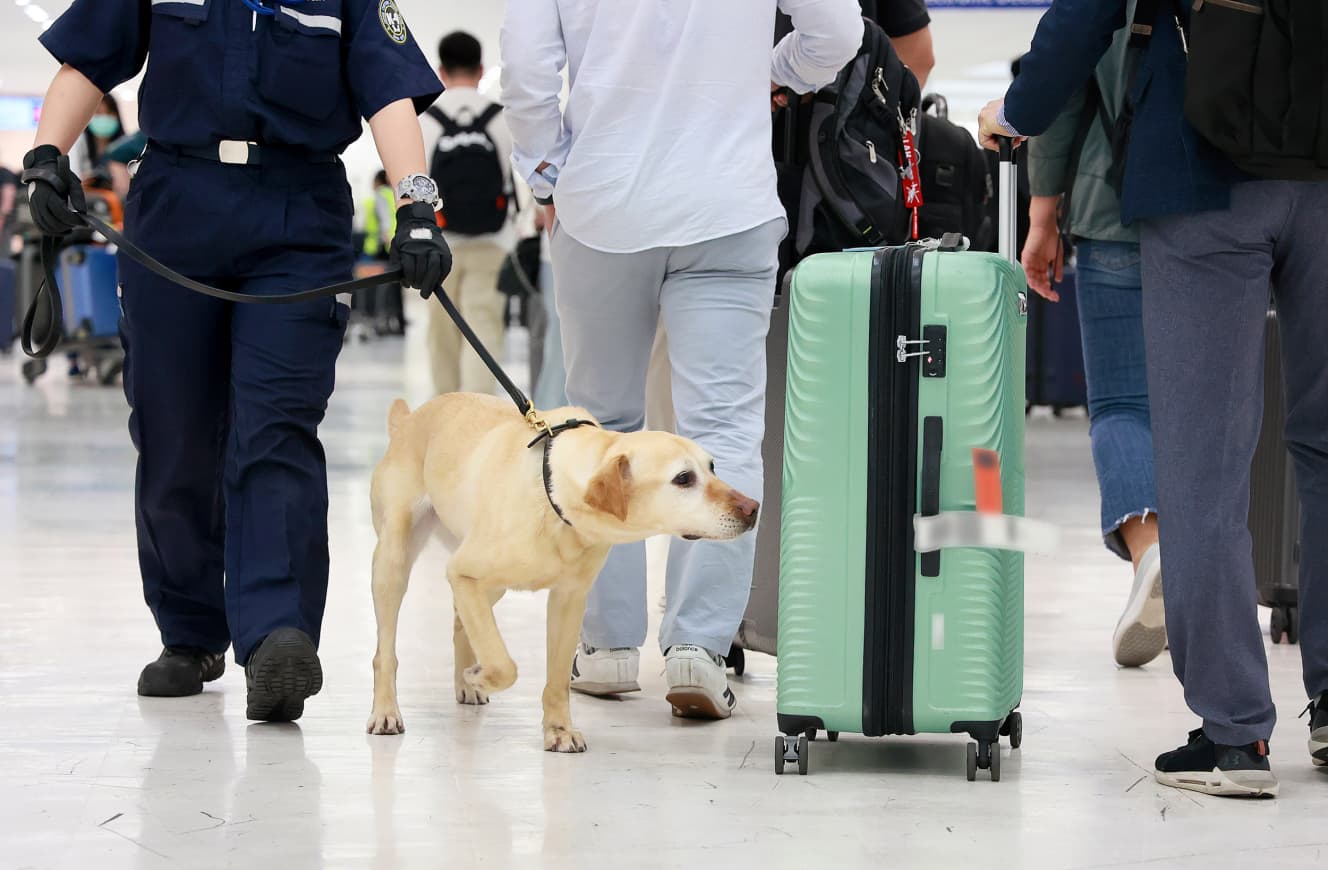
Melba” is a drug-sniffing dog with a cute expression on his face, but when he goes out into the field, he patrols with a sharp look in his eyes. The veteran “superdog” has been protecting Japan’s safety without being noticed.
Last year, the amount of illicit drugs seized by Japanese customs was approximately 2.4 tons, and the situation is extremely serious. Under such circumstances, about 130 “drug-sniffing dogs,” such as Melba, are deployed at customs offices throughout Japan. Using their sense of smell, which is tens of thousands of times greater than that of humans, they detect the scent of illicit drugs such as marijuana and methamphetamine. They then notify their handlers (paired customs officers). Drug-sniffing dogs have the important task of stopping the smuggling of illicit drugs by searching cargo, passengers’ personal belongings, and international mail arriving at airports and seaports from overseas.
We collect dogs about one year old from breeders and training centers all over the country as “training dogs,” which are candidates for narcotics detection dogs. In addition, we import about 10 dogs a year, not only from Japan but also from the Australian Border Patrol (Customs), which is promoting the breeding of dogs suitable for drug-sniffing dogs,” said an official with the Narcotics Detection Dog Training Center, Tokyo Customs Surveillance Department.
The dogs undergo rigorous training for about four months, and then take intermediate and final examinations. Only those dogs that pass the narrow 30% pass rate are certified as narcotics detection dogs.
A “Drug Detection Dog” of the highest caliber is active in the field
Among the drug-sniffing dogs working throughout Japan, Melba, who has been a drug-sniffing dog for eight years, has made history.
In February 2007, he discovered about 30 kg of methamphetamine (equivalent to 1.8 billion yen) in two suitcases belonging to a passenger arriving at Narita Airport from Montreal, Canada. The methamphetamine was divided into 30 sachets and cleverly hidden in clothing, but Melba did not miss it.
The seizure, amounting to about 30 kilograms from an airline passenger, is the largest quantity in the country’s history. Melba made a major breakthrough by stopping the largest smuggling operation in history in advance. Customs has seized more than one ton of illicit drugs for eight consecutive years since 2008, but we cannot talk about this without the efforts of drug-sniffing dogs”.
Melba is a female Labrador retriever who turned eight years old this year. Since being certified as a drug-sniffing dog in 2005, she has been active mainly at Narita and Haneda airports. The current handler, who has been paired with Melba for three years and is the third generation of the pair, answered our questions in an interview.
Melba said, “Labradors are said to be a breed that is easily dependent on their owners, but Melba is easy to manipulate no matter who is holding the leash. When it comes to investigations, he is so highly motivated to work that he will stick his nose into the crevices of the cargo to be searched on his own, without my assistance. If he senses the scent of illicit drugs, he will follow the scent to its source and find it, even without instructions.
See how they actually work!
Melba’s operating days are about the same as a handler’s, about 5 workdays a week. She says her daily schedule is almost the same as that of a working human.
Melba usually spends her time at the kennel, and her day usually starts with a walk a little after 8:00 a.m. She checks her coat and health, and then begins her work around 9:00 a.m. She checks her fur and health, and starts her work around 9:00 am. He basically has one meal in the evening after work is over. That signals the end of the work day.
Because the work of a drug-sniffing dog requires a great deal of concentration, the dogs conduct investigations that last 10 to 20 minutes, interspersed with breaks and training. On this particular day, they were weaving their way through the overflow of international travelers at the airport, sniffing around for illicit drugs. What does he do in his daily training?
First, we set out cardboard boxes that don’t smell of illicit drugs, and have Melba check around them. Then we have Melba leave the area, and we repeat the training, this time with a cardboard box that smells of illicit drugs, and have her find it. If he finds it, we reward him with a “dummy,” which is a rolled-up towel, and we play tug-of-war, Melba’s favorite game! I think she learns that if she finds drugs, she will be rewarded for playing with them, and that motivates her.
In the training session that he actually demonstrated, Melba also discovered illicit drugs. His handlers cheered, “Good boy! Good boy!” in a higher-than-necessary voice.
Melba gets fired up when I call out to him in a high voice, so I try to keep that in mind when praising him. When I call out in a high voice, ‘Mel-chan! Melba senses that I’m investigating her, and she gets into work mode. and he gets into work mode.
Melba would be about 60 years old if she were human. He has announced that he will retire this year due to aging, and his first handler will take him in after his retirement.
He has only five months left until his retirement. In order to keep Japan safe, Melba will continue to follow the scent of illicit drugs until his last moment.
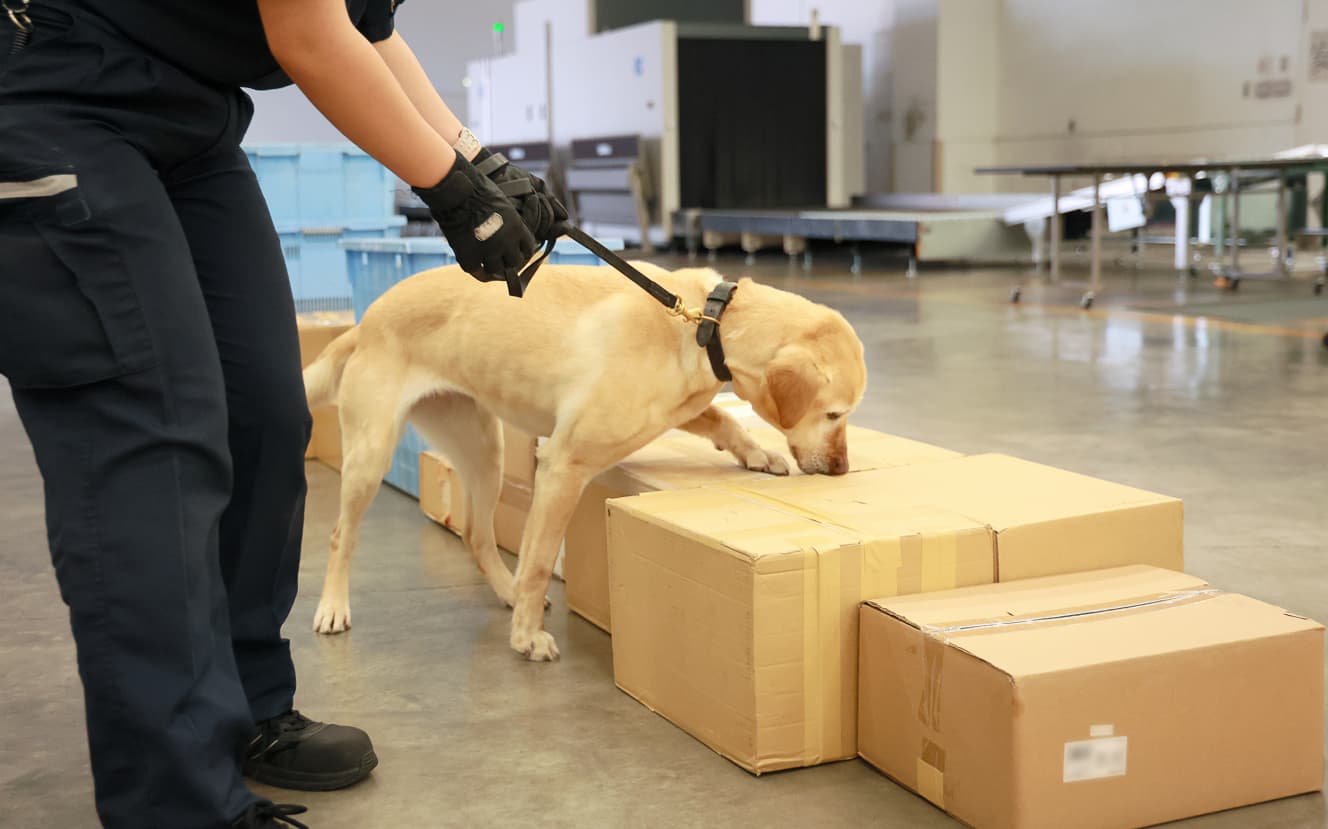
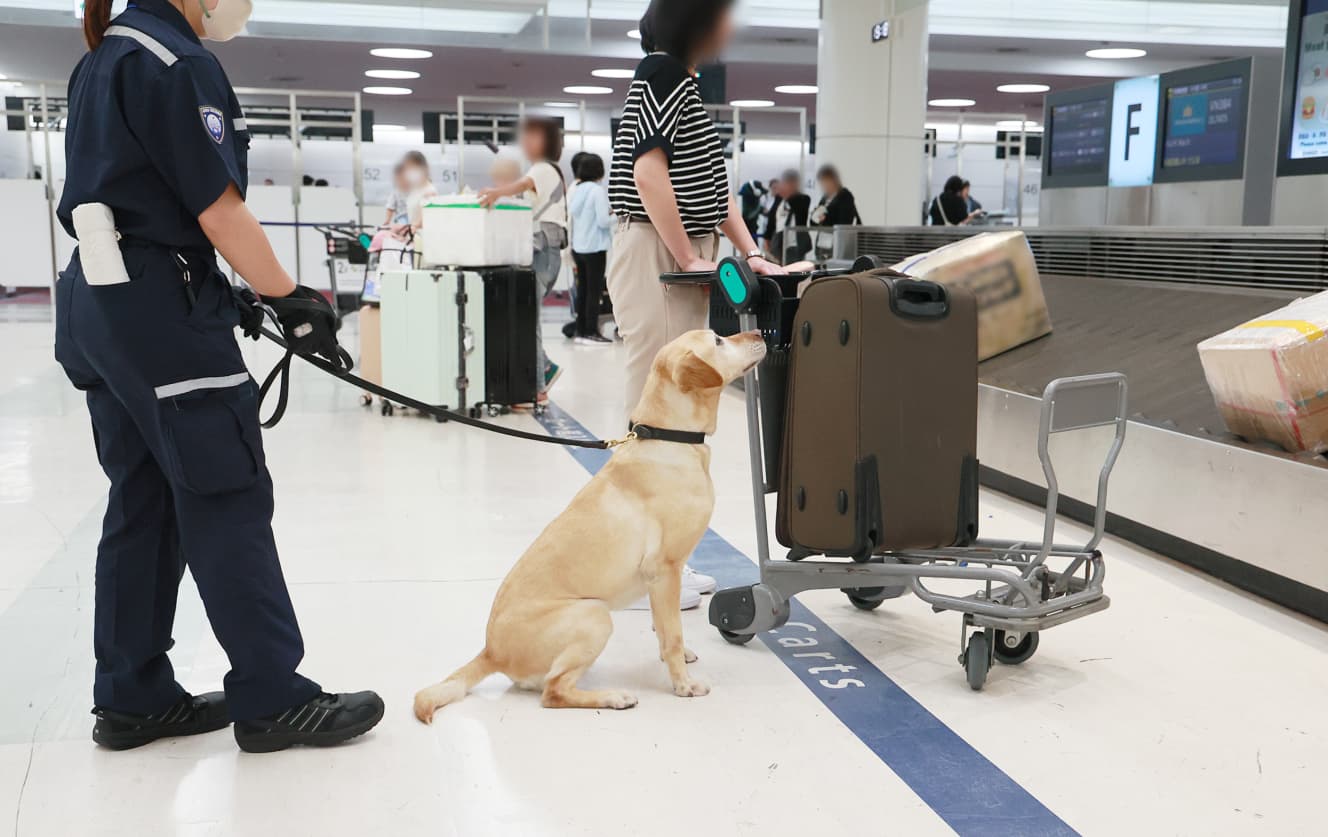
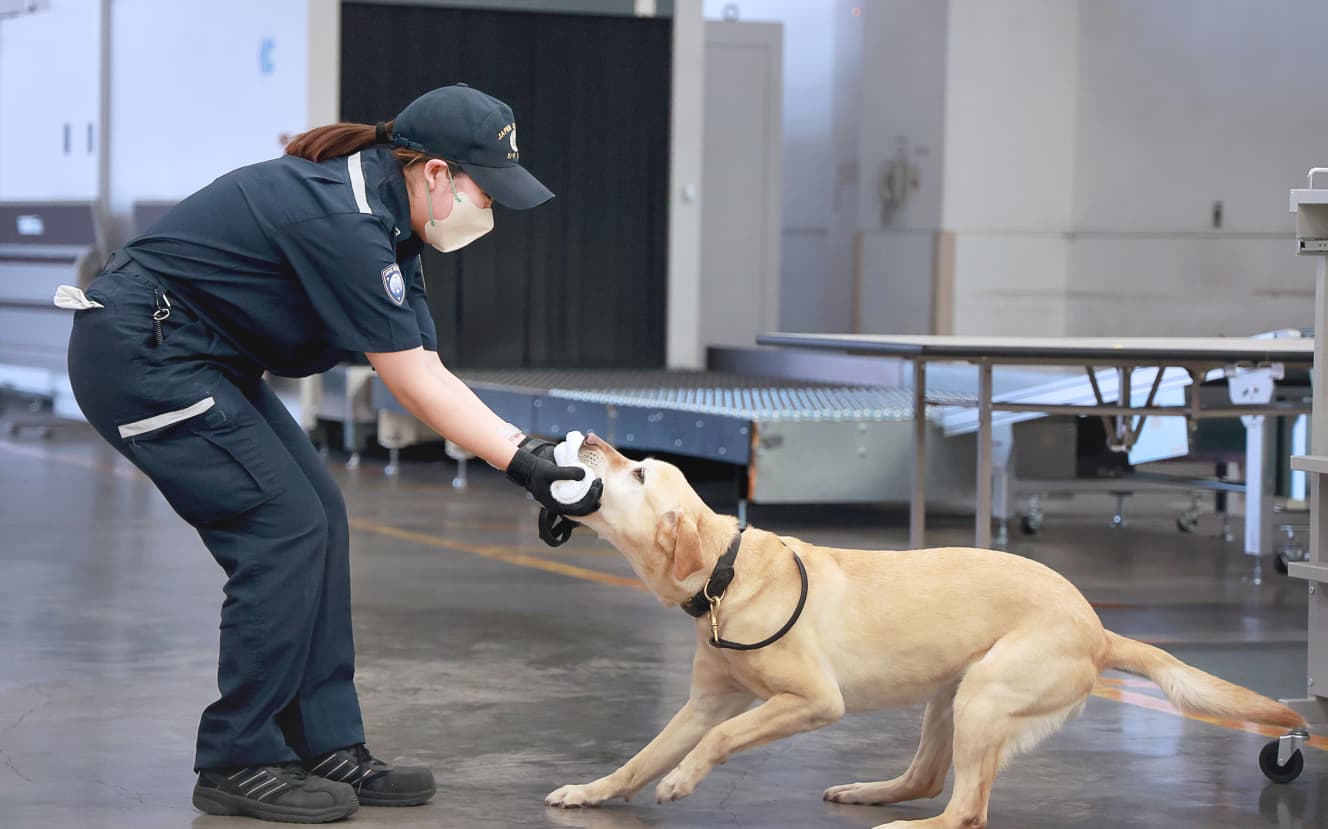
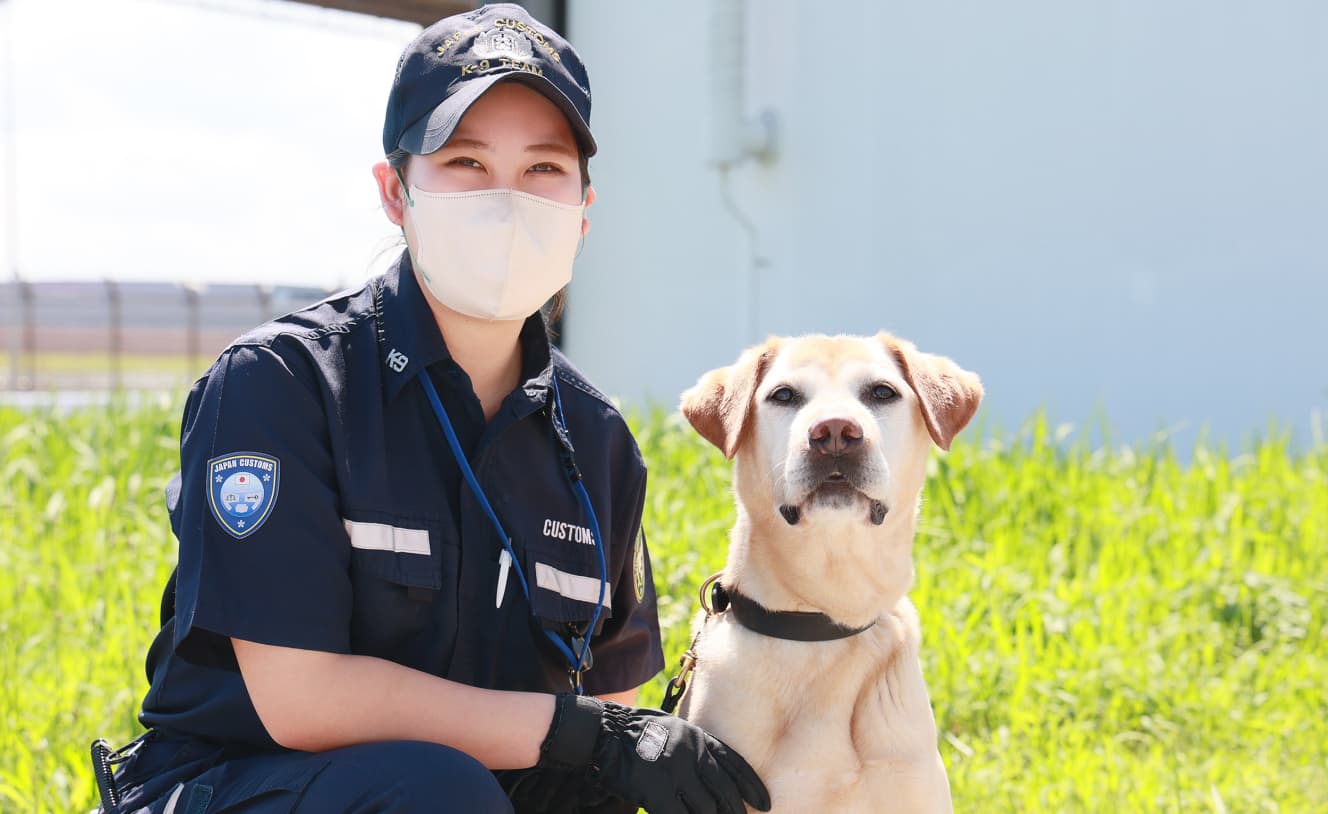
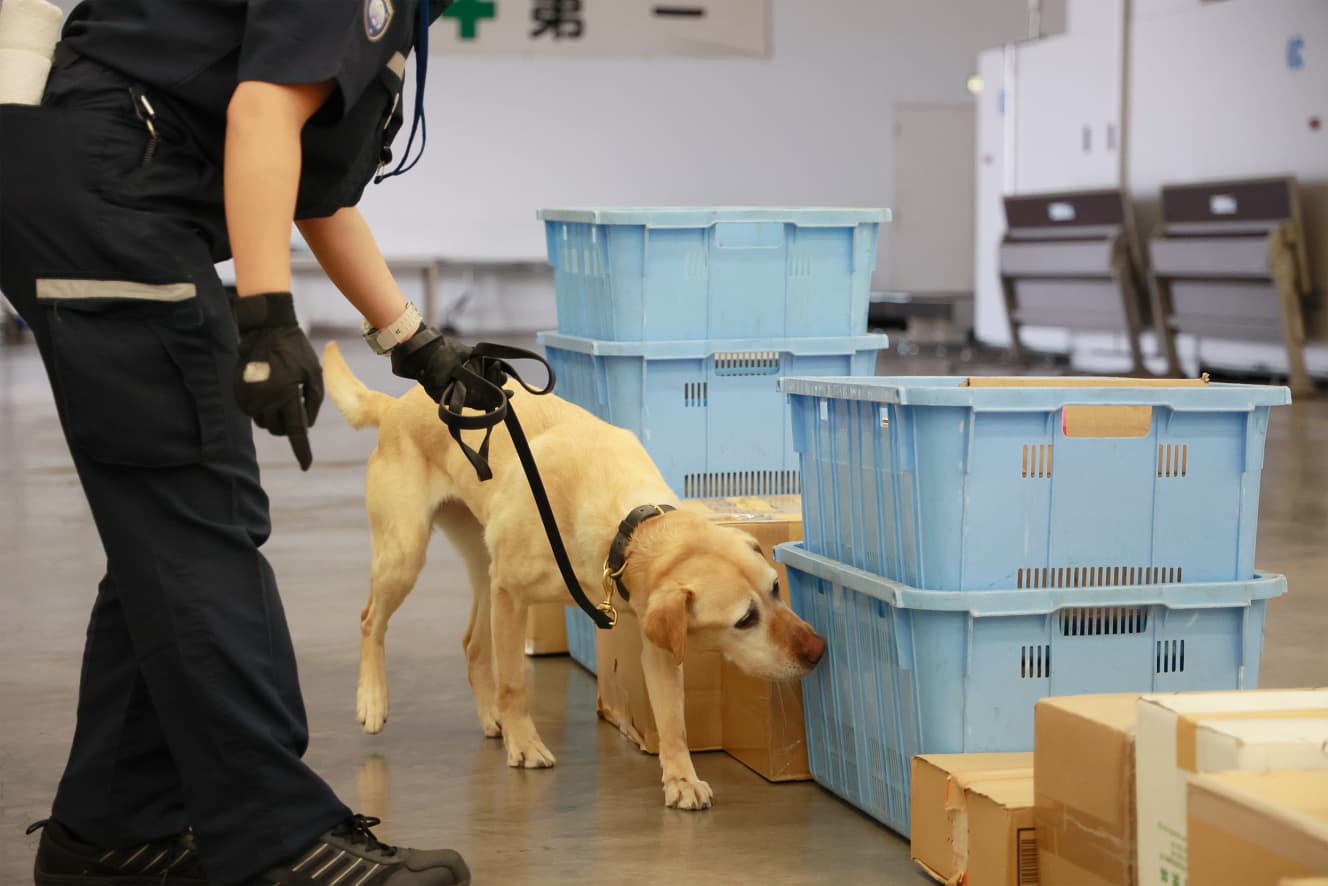

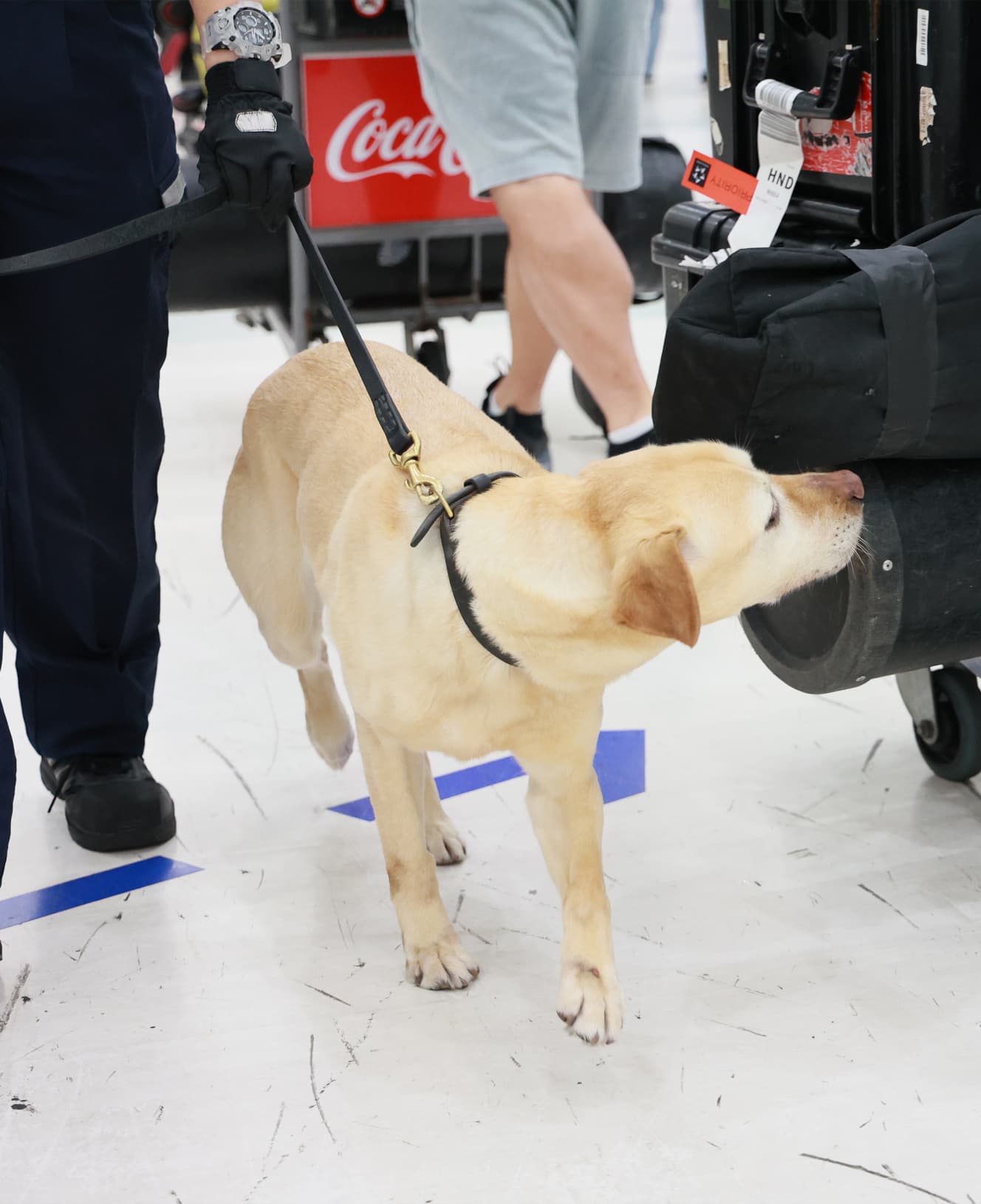
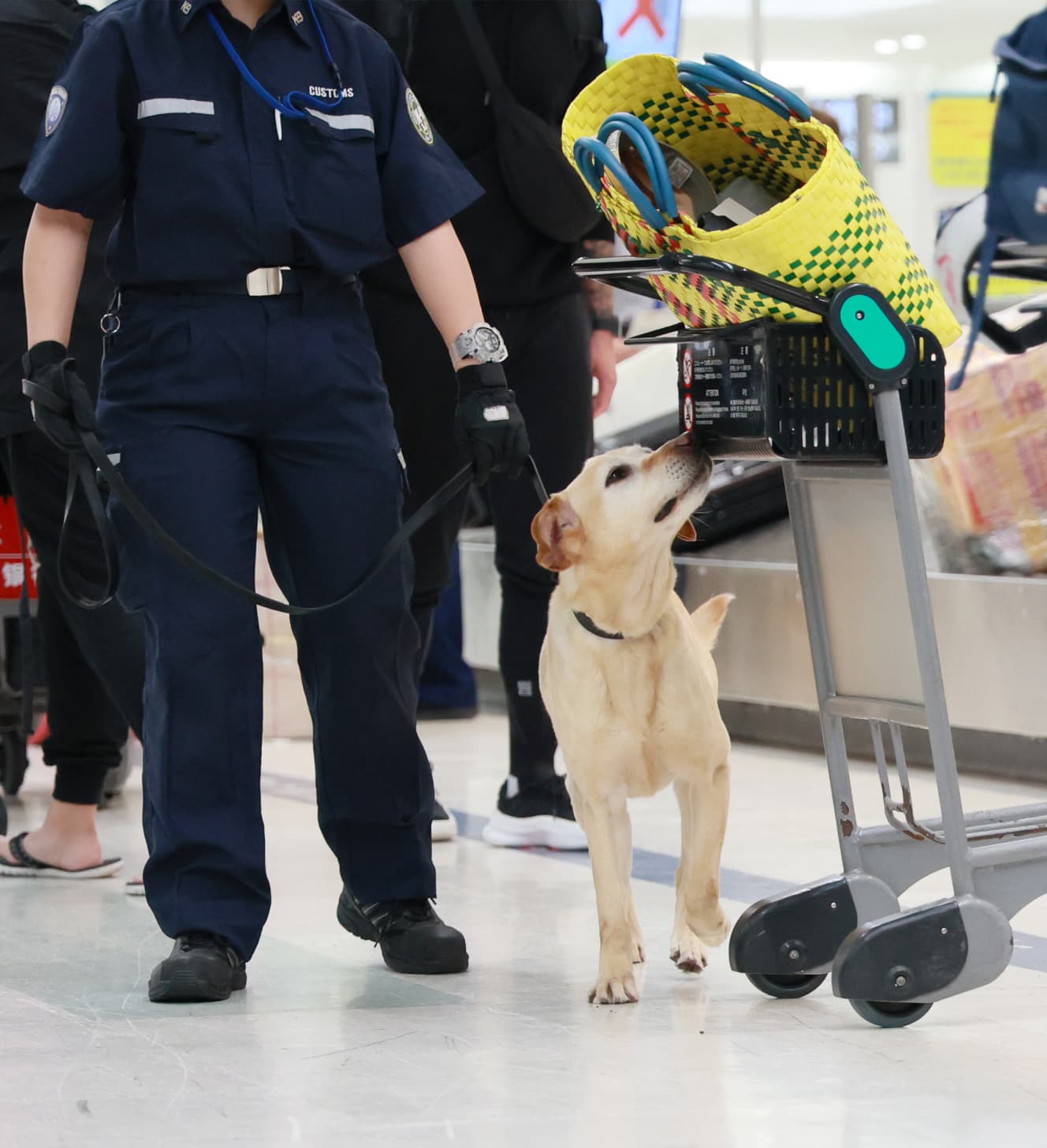
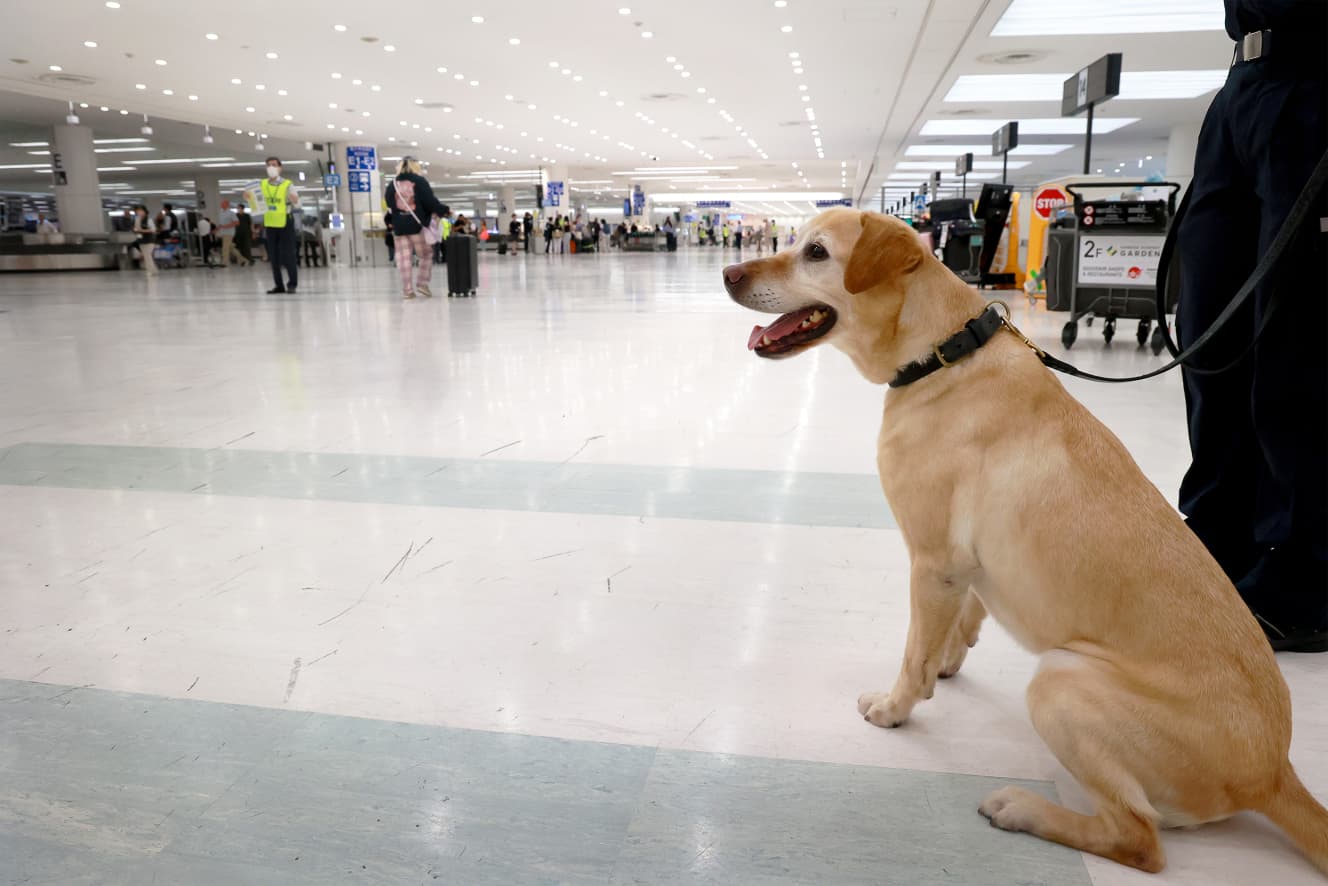
From the July 19, 2024 issue of FRIDAY
PHOTO: Kazuhiko Nakamura